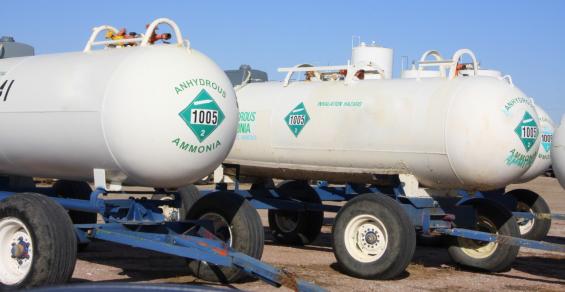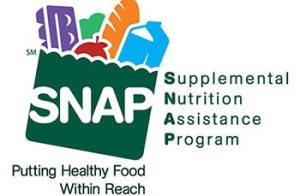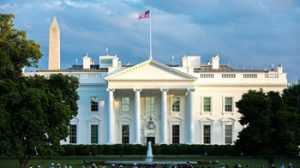Government steps in to try to get to the bottom of why fertilizer prices keep rising.
As ongoing supply-chain bottlenecks and the rising cost of energy send fertilizer prices soaring, and with the potential of Russia’s invasion of Ukraine to create additional disruptions, many members on Capitol Hill are urging the Biden administration to immediately take all necessary steps to curtail the rising costs impacting American farmers and consumers.
“We are writing to express my serious concern regarding record-high fertilizer prices impacting American farmers going into the spring planting season. Fertilizer is a primary input and major expense for producers across the country, and price increases will have a significant effect on farm profitability and the prices of food and consumer products,” according to a Senate letter led by Sens. Mike Rounds, R-S.D., and Bill Hagerty, R-Tenn., and 17 other Senate colleagues.
Since January 2021, according to the most recent data from USDA’s Agricultural Marketing Services, the prices of key fertilizer sources have substantially increased as follows: anhydrous ammonia (by 203%); Urea (by 141%); liquid nitrogen (162%); monoammonium phosphate (MAP) (by 74%); potash (by 125%); and farm diesel (by 95%).
Ongoing supply-chain bottlenecks and the rising cost of energy are among the factors sending fertilizer prices soaring, and disruptions stemming from Russia’s invasion of Ukraine will only compound the problem.
“We are therefore urging your administration to review all available options to lower the cost of fertilizer, including but not limited to: eliminating the cross-border vaccine mandate for transporters of essential commerce; engaging stakeholders to prevent a Canadian Pacific Railway strike; ensuring agricultural minerals like phosphate and potash are part of the Department of the Interior’s List of Critical Minerals; increasing U.S. gas production; and approving pending export permits at the Department of Energy for Liquefied Natural Gas,” the letter adds.
As Congress has called for additional sanctions against Russia, it also has increased the calls for immediate relief to farmers as it relates to fertilizer prices. In voting for Suspending Normal Trade Relations with Russia and Belarus Act, Rep. Rick Crawford, R-Ark., says rising fertilizer costs can’t be ignored.
“While I strongly believe that this next round of sanctions will continue to hold Russia and Belarus accountable, we also cannot ignore soaring fertilizer costs already propelled by global supply chain issues,” says Crawford. “From temporarily or completely eliminating barriers for fertilizer trade from other nations, to input subsidies for our producers to offset input costs – we must be willing to put all available solutions on the table.”
ITC action urged to lower fertilizer costs
In 2021, ahead of the recent run-up in fertilizer prices, the Commerce Department gave its stamp of approval for the U.S. International Trade Commission to place duties on phosphate fertilizer products imported from Morocco and is also considering imposing new duties on urea ammonium nitrate fertilizer from Trinidad and Tobago.
Imports currently supply about one-third of all domestic phosphate fertilizer, and Morocco has been a long-time supplier to U.S. farmers. Currently, only about 35% of the world’s traded supply of phosphate fertilizer is not subject to duties for import into the U.S. Since the U.S. Department of Commerce’s decision to impose duties on phosphate fertilizer imports from Morocco, phosphate fertilizer prices have increased 93%.
In another letter with members from both sides of the aisle in both the House and Senate, members asked the ITC to eliminate duties on phosphate fertilizer products imported from Morocco and to suspend efforts to impose new duties on urea ammonium fertilizer from Trinidad and Tobago.
In their letter to ITC Chair Jason Kearns, the lawmakers warned that farmers are facing fertilizer prices four to five times higher than last year.
“Eliminating these duties on fertilizer imports provides the most immediate opportunity for a near term, partial remedy to the high costs of fertilizer facing U.S. farmers before the end of the 2022 planting season,” the lawmakers concluded.
Sen. Roger Marshall, R-Kan., and Rep. Tracey Mann, R-Kan., introduced bicameral legislation March 10 that would create a pathway to establish a waiver for the countervailing duty or anti-dumping duty for a year if there is an emergency situation including natural disasters, war, epidemics, labor disputes or major accidents.
The current process for the ITC does not consider broader economic issues when issuing a CVD or AD. The ITC only asks if unfair foreign pricing and government subsidies distort the free flow of goods in a way that warrant a CVD or AD. Rather than change the way a CVD or AD is issued or adjust the process on the front end, this bill focuses on creating a new petition process after a CVD or AD has been issued.
There are two ways that emergency situations will allow agricultural groups to petition the ITC: If the emergency situation limits the domestic production of merchandise subject to the duty in a manner that causes economic hardship for users of that merchandise or merchandise made from merchandise subject to the duty; or if the emergency situation would result in a supply and demand disruption that substantially increases the price of merchandise subject to the duty or merchandise made from merchandise subject to the duty.
National Sorghum Producers Chairman Kody Carson says, “NSP strongly supports maintaining anti-dumping laws that prohibit foreign nations from anticompetitive practices such as selling their products onto the U.S. market at below their own costs of production. But we also need to ensure that we do not create near monopoly conditions here at home that result in exorbitant fertilizer prices.”
“Fertilizers and other inputs have been at an all-time high, and the war in Ukraine promises to drive up the price of products even more,” adds Iowa farmer and National Corn Growers Association President Chris Edgington. “Fertilizer have become increasingly hard to secure and pay for because of tariffs or the threat tariffs on imports. That’s why passage of this legislation would come as a welcome relief to farmers across the country.”
Anticompetitive inquiries on fertilizer industry
The USDA launched a public inquiry in the Federal Register aimed at gathering information on agricultural inputs, fertilizer, and retail markets. The USDA Agricultural Marketing Service is seeking “evidence of collusion, market manipulation, or other anticompetitive practices among competitors, buyers of farm products, commodity traders or related financial firms to fix or alter prices, allocate markets, or restrict from where a farmer buys inputs and sells product.” The comment periods are open until May 16, 2022.
Grassley has also called on Attorney General Merrick Garland to investigate concerns raised by American farmers about possible anticompetitive activity and market manipulation in the fertilizer industry.






